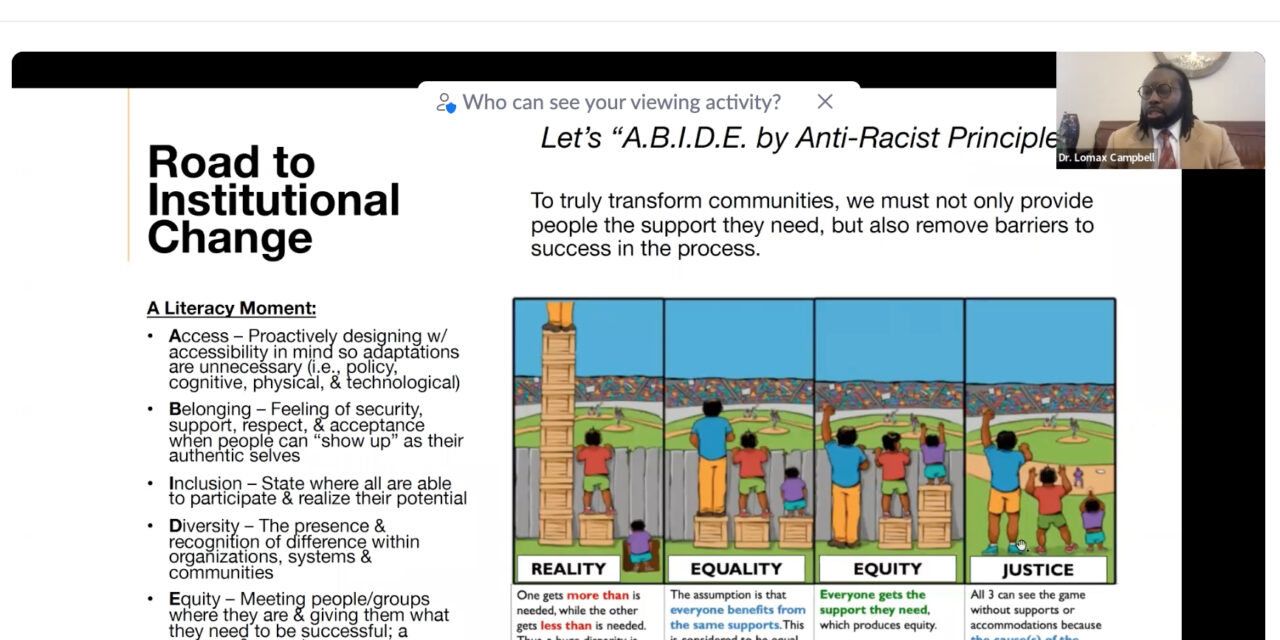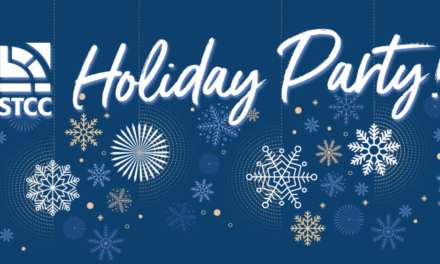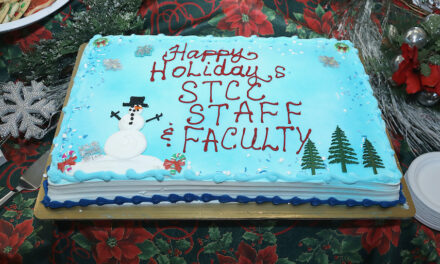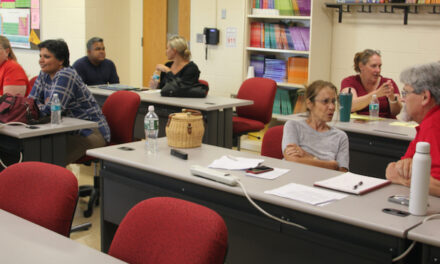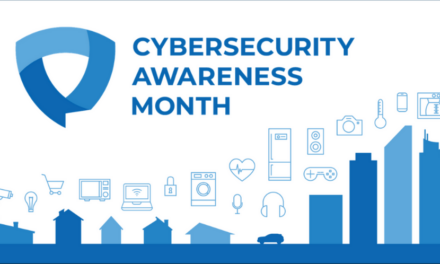Dr. Lomax Campbell helped Springfield Technical Community College kicked off 2022 with a powerful and engaging presentation during Professional Day regarding how to take an inclusive approach to strategic planning.
Campbell, the founding President and CEO of Third Eye Network, LLC, an innovative multicultural strategy consortium serving a diverse multisector clientele, spoke to close to 250 faculty, staff and administrators participating in a Zoom webinar on Jan. 20. He focused on “understanding organizational culture and leadership” and discussed the “road to institutional transformation.”
This presentation introduced an equitable and inclusive approach for consideration as STCC embarks upon its next strategic planning cycle. Strategic planning is an ongoing process by which institutions examine themselves—including their cultures, resources, constraints, and aspirations—in the context of their environment and determine the path forward.
As a follow-up to the keynote presentation, STCC President Dr. John B. Cook held a virtual session to also share a strategic planning outlook, and tied Campbell’s ideas and concepts to upcoming efforts at the college. Cook encouraged everyone to read an article referenced by Campbell during this keynote from Inside Higher Education titled the “Revolution in Higher Education is Already Underway” which describes changes in higher education that can assist with strategic planning at STCC. Campbell shared that the article focuses on mega trends including the decline of traditional aged students, and the value of educational access, particularly for low-income and first generation students.
Dr. Cook shares thoughts on strategic planning at STCC
Focusing on planning efforts at STCC, Cook said, “This is an opportunity for us; as we enter into strategic planning … to really imagine ourselves and the future of the institution.”
He added, “We can be encouraged about our place in higher education. We are located in the [fourth] largest city in New England.” But Cook added, an ongoing challenge is to retain students. “It is going to be harder and harder to hang on to them in a full time way,” Cook said. “We are going to talk about this as part of strategic planning.”
Cook said strategic planning will include ongoing work at keeping STCC accessible and affordable and continuing conversations about equity, anti-racism efforts and engagement with communities of color and first-generation students.
“There is such an opportunity for us to further continue to look to those areas,” he said about sources of strength.
In his presentation, Campbell said taking risks should be a part of planning. Cook tied in Campbell’s comments, citing the significant reimagining of developmental math at STCC as a version of a “good risk.”
“We have tried at different stages to reimagine development math but we finally gave ourselves permission through a [Foundation Innovation] fellowship led by Vanessa Hill,” a Professor of Mathematics Cook said.
STCC’s effort to beef up online education is another example cited as a good risk. Cook said the investment in the Center for Online Digital Learning (CODL) helped faculty and students through the pandemic and will continue to support them moving forward.
He also suggested that structural changes need to be complicated and offered that formalizing waitlists, as an example, could better identify student needs matched to institutional response.
“It will be worth our time to invest in the formalization of a waitlist,” Cook said.
Cook praised other collective work at STCC, including a recent self-study, completed as part of accreditation by the New England Commission of Higher Education (NECHE), as well as the 2019 master plan that included priorities such as vacating the School of Health and Patient Simulation from Building 20. With strategic planning, the idea of being holistic is valuable, he said.
Dr. Campbell asks to think about legacy at STCC
In his keynote presentation, Campbell asked his audience to contemplate their legacy at STCC and share their thoughts in the chat.
“If you begin to think about what you want your contributions to be if you look back on your life, five, 10 or 15 years from now, as a faculty member, a staff member or administrator, what do you want to be remembered for?” Campbell asked. “What are the major contributions? What legacy would you want to leave?
“If you have to characterize it, either with something from nature like an animal, an insect, or plant, how would you characterize your legacy? What would that look like? And then as an institution, as you begin thinking through the next three to five years of what you want to collaborate on, and what you want to be when you grow up all over again, what are two to three hallmarks of your institution that you don’t want to lose because it’s fundamentally who you are?”
Chat comments responding to Campbell’s questions included (among others):
- Supportive
- Making a difference in the lives of students
- Kindness
- Diverse Nurses
- Preparing students
- Creating students who are independent and not afraid to use their voices
Campbell discussed challenges facing higher education and underscored the themes of diversity, equity and inclusion (DEI). Speaking about cultural blindness, Campbell remarked, “When people say I don’t see color, what they’re really saying is that I’m blind to the diversity and the power of that diversity that our agency, institution or profession can benefit from leveraging.”
DEI are three operating principles out of five he discussed under the acronym ABIDE. He discussed two others: access and belonging that often goes unconsidered.
Road to Institutional Transformation
“You have to decide where you need to be transactional and where you need to be transformational,” Campbell said. “Everything cannot change. But everything can’t stay the same because the world around us is evolving.”
Framing the concept in strategic planning terms, Campbell advised looking to internal and external stakeholders for input.
He challenged his audience to consider a paradigm shift that moves from the way the institution has always done things.
“We move from one way of doing strategic planning to culturally relevant ways of doing the activity we are talking about,” Campbell said. “Where it’s not just coming from the senior leadership team, but bottoms-up, inside-out, outside-in, learning from the world around, the community of Springfield and also top down. They need to meet in the middle.”
After his presentation, Campbell answered a range of questions that spanned from strategic planning to addressing deficit-based approaches.
“Your plan should be a tapestry of priorities that are broad enough to cut across the entire institution’s priorities,” he said.
Dr. Lomax Campbell has 19 years of combined experience in small business, higher education, and government administration. His expertise includes: Strategic management, ethnic psychology, cultural competence, urban entrepreneurship, technology innovation, economic and workforce development. He holds a Doctor of Management degree from the University of Maryland Global Campus, an Executive MBA and a Bachelor of Science degree from Rochester Institute of Technology, and a Certificate of Completion in Leading Economic Growth from Harvard Kennedy School of Government.

